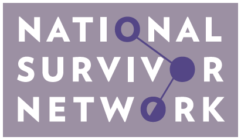May 20, 2022
This document was drafted by the NSN Restructure Team as part of our values clarification process.
The NSN does not advocate for causing harm to end harm, and end demand practices (including models known as the “Nordic Model” or “Equality Model”) harm people in the sex trades, whether consensual or trafficked. The NSN opposes end demand and other anti-trafficking efforts that rely upon criminalization or shaming of consensual adult sexual behavior. This is not at odds with systemic change to address racism, misogyny, and violence, but rather is an essential part of it, and this position is inextricably tied to our commitment to creating an inclusive space for survivors of human trafficking who have historically been excluded from the movement.
1. End demand causes harm by increasing the power buyers have over people in the sex trades. End demand practices put people who trade sex in the position of protecting buyers (who may be more mistrustful if they are fearful that they are being set up or entrapped), which makes the person trading sex more likely to take on higher-risk situations in order to meet trafficker-imposed quotas or income needs. For example, a buyer/client may be less likely to participate in screening, which may in turn lead to increased reliance on third parties.
2. End demand puts people in increased contact with law enforcement by increasing policing. This increases the likelihood that people who trade sex will be deported, arrested for prostitution or other charges (such as drug-related charges), assaulted by law enforcement, or be criminalized in some other way. Criminalization can cause people to lose custody of their children, lose housing or housing benefits, lose government assistance, and be ineligible for many employment opportunities.
3. End demand reduces income for people who are in the sex trades consensually without changing the fundamental societal and economic conditions that create their vulnerability to trafficking, thereby decreasing their economic security and stability.
4. End demand practices harm people by promoting banking discrimination, making people reluctant to help them, and by criminalizing the ways that they organize to keep themselves safe. Even in countries where people in the sex trades cannot be arrested or charged with prostitution, they still may face consequences for working together (like a buddy system), taking in-calls (in their home or other worker-controlled location, rather than unknown settings), living with other people in the sex trades, or helping another sex worker or survivor find clients or safety information. Similarly, these criminal-legal frameworks often define trafficking in ways that criminalize helping people who trade sex. For example, someone might be less likely to let a homeless young person stay with them while looking for more stable housing if they are afraid they will be charged with trafficking.
5. End demand increases shame, stigma, and misinformation about commercial sex. In countries where end demand is practiced, people in the sex trades still experience discrimination from families, partners, child welfare agencies, and housing providers based on their engagement in commercial sex. Even end demand awareness campaigns that do not include criminal-legal approaches rely upon:
- increasing shame and stigma (framing commercial sex as dirty or immoral),
- repeating language used to justify violence against people in the sex trades (stating that buyers control the person trading sex, referring to them as objects for buyers),
- denying the agency of all people in the sex trades (“prostituted people” used universally regardless of consent),
- Invalidating the autonomy of people in the sex trades (using “commercial sexual exploitation” to refer to all commercial sex regardless of consent),
- and suggesting that all people in the sex trades are being coerced.
Rather than criminalize consensual adult sexual behavior, we support harm reduction principles that promote self-actualization and autonomy while we continue to work on systemic change. Criminalization of consensual adult sexuality and of poverty has historically been and continues to be weaponized against individuals from marginalized communities, and leads to over-policing of Black, Indigenous, and other People of Color (BIPOC), transgender and queer individuals, and trafficking survivors who rely on commercial sex income for their independence.
